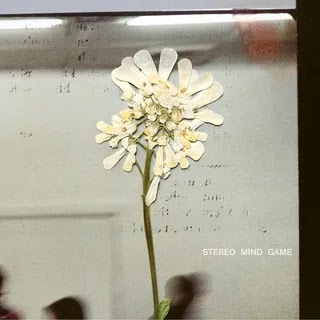Against dry, plucked guitar and minimal piano, the Texas songwriter creates moments of intimacy that always seem to suggest more than he’s willing to say outright.
If you saw Ryan Sambol live, you might at first wonder if he was putting you on. The Texas-raised songwriter is fond of large white cowboy hats. He mutters odd little jokes; he appears either slightly boozed or just a bit too shy for showbiz. But spend some time with his records and you’ll understand that his distinctive observations and skewed wit are essential to his work. A decade ago, Sambol was cutting his teeth in Austin garage rock band the Strange Boys, which he’d formed as a teenager. In the years since their final LP—2011’s Live Music—Sambol has rambled through a solo career, issuing Now Ritual in 2013 as well as albums with Living Grateful and the Interstate Group. Though his live shows are intimate affairs, Sambol’s recorded music has usually involved a full band. On his latest album, Gestalt, he’s all alone, and the solitude serves him well. Over 22 minutes, Sambol crafts quiet, intriguing country-folk songs that are specific and lean.
Gestalt is a small record in the best sense. Sambol’s voice is thin and delicate, his instrumentation stripped back. Dry, plucked guitar and minimal piano suit his wavering voice, which in his Strange Boys days was often compared to a young Bob Dylan. Though spare, Gestalt sounds spontaneous rather than unfinished—hearing it feels like eavesdropping on a neighbor who’s winding down with his six-string after work. It’s one-way intimacy, the kind that comes with peeking in on someone’s most vulnerable moments.
On Gestalt, Sambol sifts through half-formed memories. Their shapes are subtle, but sometimes a faint impression of the past can communicate more than a detailed rendering. On “Just Like Golden Hours,” he recalls a modern meet-cute: “We met in the comments of one of our favorite singer’s songs. We felt we had accomplished something new and young.” Sambol’s voice is more processed than on any other track, warbling as if transmitted through an aquatic dream, and his layered, repetitive guitar work deepens the effect. This is one of Sambol’s key devices—the ability to spin banal scenarios into moments of magical realism. An encounter in the comments section could indicate two loners on a YouTube binge, but Sambol makes it sound like the stuff of a certain romance column.
Sambol doesn’t say a whole lot, but the words he utters tend to linger, inviting interpretation. On “There Are Things to Be Doing,” Sambol mumbles along to his drowsy guitar: “I was holding a plank/On soft carpet in the apartment of a friend/Who finds all our troubles funny.” It’s a simple but loaded image. You get the sense that this friend with plush flooring makes a lot more money than our protagonist—a man who’d rather tense up on a rug than relax across it. It can’t be an accident that at least two kinds of “plank” are made of wood: the kind you can’t comfortably sleep on, and the kind you walk off. In a single snapshot, Sambol hints at the stark yet silent contrast between struggle and a life of leisure. His opening line on “Big Text” is just as crammed with potential meaning: “What a mess I want to make with you.” He almost whispers it. The phrase might refer to sex, an unhealthy relationship, a couples’ pottery class, or a night of eating ribs. It could mean all of those things, or none, but the fact that such a simple expression sparks so much imagery is a testament to Sambol’s skill as a writer.
Sambol’s ability to compress big ideas into compact visuals might stem from his years writing poetry. On loping closer “His Aim,” he marvels at broken flower pots, and how “the soil and shape remain the same” after they’ve shattered. On the plucky cowboy number “Round the House,” he directs his gratitude to a nurturing woman. “I feel strong from the breakfast she made like I may never have to eat again,” he drawls. “Humbled, full, and safe.” These are familiar things we often take for granted: the accidental beauty of a busted pot, the warmth of a home-cooked meal. But his observations forego schmaltz and defamiliarize everyday scenes.
Some of Sambol’s scenery is less familiar, even surreal. Opener “You’re Still Loveable to Someone” is filled with funny little sketches, like a 400-million-year-old stone that screams cryptic advice and an unusual offer of camaraderie: “Let’s raise money for each other sometime/If the need arose it’d be good to know.” It is the album’s strangest yet most beautiful song, built on a sweet string melody and anchored by Sambol’s forlorn sense of humor. Even at its most peculiar, there is an unexpected comfort in this music. As a narrator, Sambol isn’t begging us to tag along. His voice is uneasy and hushed, like he’s worried we might hear him. But if you can sneak into these songs and sit with them, their small moments of intrigue may surprise you.
















0 comments:
Post a Comment